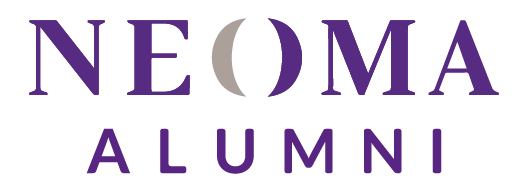“Networking, how to dare methodically” by Mathieu Chérubin
 “I have no contacts...” “I need advice!” “What will be my next professional move?” “I am unable to put this project together.”
“I have no contacts...” “I need advice!” “What will be my next professional move?” “I am unable to put this project together.”
We have all heard these words in the mouth of a close relation, a co-worker or an acquaintance. It is often when these issues arise that we realize the importance of having a network and mentors we can rely on, people who can provide answers to these questions. It is mandatory to step outside of our comfort zone and seek out answers and information where they lie: the network.
66% of executives are convinced of the importance of maintaining a network to progress professionally but only 15% take part in networking as part of a structured approach and 73% claim not having the time.
If for some this approach is perfectly natural, it is far from the case for most of us and the network may seem very abstract. Let's start with a little definition of networking: “to build a network and use a network of acquaintances to achieve objectives”. This definition has the merit of being straight forward, but must be qualified. It is not a question of “using” anyone but to take part in a Win - Win approach. Indeed, the network is a form of marathon, it pays off over the medium - long term but more importantly it has to be maintained, that is achieved by being involved and giving to those who will help you in return.
Why?
As the definition indicates, there is not ONE but SEVERAL objectives. In fact, one can network for different reasons and not exclusively when seeking employment. Here are some of the main and most common reasons to network:
- Find or change jobs
- Create a business (clients, prospects...)
- Carry out business intelligence (industry, operations)
- Develop knowledge in one’s area of expertise
- Find partners and investors
- ...
How to do so?
The goal of this approach is not to become a "serial networker" overnight especially if one is not used to networking, but rather to implement a simple method with concrete actions to identify and contact people who can advise you and that you will be able to help in return. Set small goals but stick to them: for example, start with 1 lunch/coffee every month.
1. Map your network
We usually have more contacts then we think. But we have to start by identifying the people to contact. To do so, there is nothing like Post-its (or an excel table to preserve the planet) and a bit of thinking. Ask yourself the right questions in order to write the name of a person who can provide you with answers on each Post-it. Here are some questions to give you a head start in this work:
- Who are the people that I know that are experts in their field? (it can be your aunt, a friend, the head of a company, your former boss)
- Who did I work with? (a basic but very resourceful one)
- Who are the inspiring people I know?
- Who are the entrepreneurs I know? (they have clients, suppliers and very often a great network! Therefore a special group)
- Who are the influencers that I follow in my field? (and yes, they reply to messages)
2. Prepare your plan of action!
Once you have identified contacts, you must prioritize your actions and prepare your plan. Indeed, some contacts will be able to help you on a short term and you will have to contact them in priority while others will be useful on a longer term. It depends on your project. If you wish to set up a new platform to manage the recruiting within your company, you can then contact people who use the selected tool and who therefore can advise you quickly. On the other hand, if you create your business and your business plan is not yet completed, you will not start approaching prospects.
For each contact, ask yourself the following questions:
- The What? What is the targeted goal
- The How? Having coffee or lunch for instance
- The When? Give yourself a deadline
3.Dare!
Maintaining a network must never be seen as the goal in itself, but as the first step towards other encounters and opportunities.
Answering these questions for each of your identified contacts will help you be more efficient and more importantly to aim accurately when contacting the person. In fact, everybody is willing to help and people are generally flattered to be asked, but the request has to be as specific as possible to get a YES. For instance, if you are looking for a job, most definitely, refrain from sending your résumé! Indeed, your contact may not respond in fear of disappointing you and being unable to respond to your request. Instead, offer to chat about the company and the trade for instance and if possible exchange contacts. A networking meeting should never be seen as the goal in itself, but as the first step towards other encounters and opportunities.
The key is also to keep in touch and always thank and inform your contacts on the progress of your project. Also, do not forget to offer a hand in return and answer requests, even if you are caught in the daily routine or under a heavy workload.
Networking is like running a marathon, it takes a lot of preparation, it can also take time but you will reap the rewards of your efforts much faster than you think. Set up your network routine and most of all dare!
Find Mathieu’s articles on Linkedin
If you wish, you can contact Mathieu on this address: mathieu.cherubin@gmail.com
Further readings:
Trouver le bon job grâce au réseau, by Hervé BOMMELAER, Eyrolles Editions
Do Over: Make Today the First Day of Your New Career, by Jon ACUFF, Portfolio Editions

Comments0
Please log in to see or add a comment
Suggested Articles


